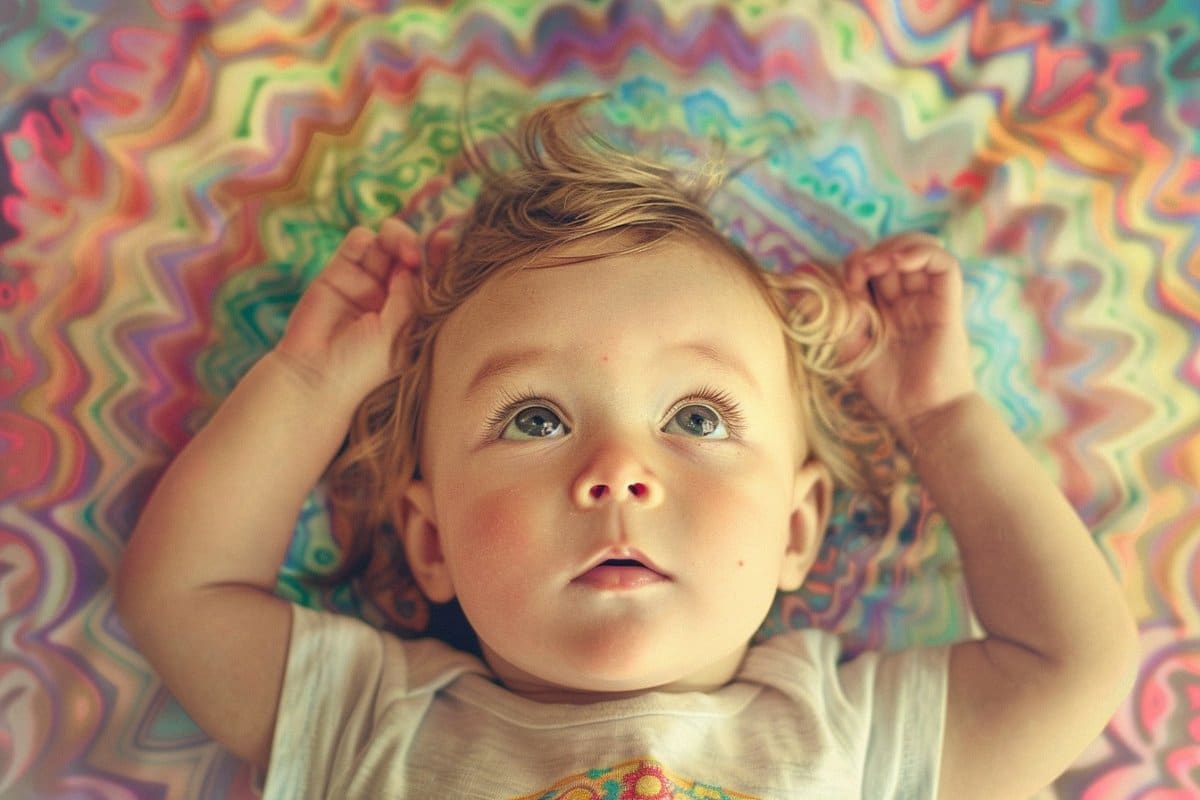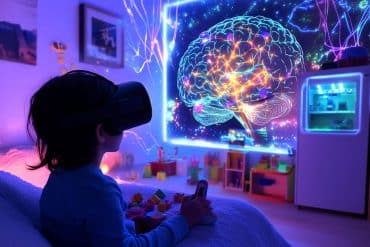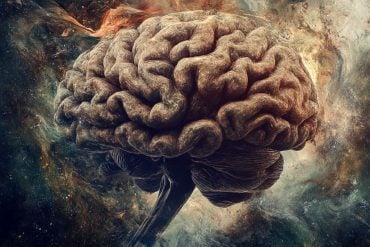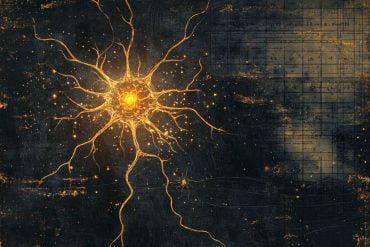Summary: Researchers propose a new approach to determine when consciousness emerges in infancy. Their suggestion, based on identifying markers of consciousness in adults and tracking when these markers appear in babies’ development, offers a potential pathway to understand this long-standing question.
The approach includes looking for specific behaviors or brain activation patterns known to correlate with consciousness in adults and then finding when these begin in infants. By identifying and grouping a broad range of markers present in early and late development, the researchers aim to pinpoint the emergence of consciousness more accurately. This method could provide insights into the complex process of becoming conscious, despite challenges like the inability of infants to communicate their experiences.
Key Facts:
- The new method proposes identifying adult markers of consciousness and tracking their appearance in infants.
- Researchers aim to group a wide range of developmental markers to pinpoint when consciousness emerges.
- The approach addresses the challenge of studying consciousness in non-verbal subjects like infants.
Source: University of Birmingham
Academics are proposing a new and improved way to help researchers discover when consciousness emerges in human infancy.
When over the course of development do humans become conscious? When the seventeenth-century French philosopher René Descartes was asked about infant consciousness by his critics, he eventually suggested that infants might have thoughts, albeit ones that are simpler than those of adults.
Hundreds of years later, the issue of when human beings become conscious is a question which remains a challenge for psychologists and philosophers alike.

But now, in response to a recent article in Trends in Cognitive Sciences, two academics from the University of Birmingham have suggested an improved way to help scientists and researchers identify when babies become conscious.
In a Letter to the Editor, also published in Trends in Cognitive Sciences, Dr Henry Taylor, Associate Professor of Philosophy, and Andrew Bremner, Professor of Developmental Psychology, have explored a new approach which is being proposed, that involves identifying markers of consciousness in adults, and then measuring when babies start to exhibit larger numbers of these in development.
Dr Taylor says: “For example, imagine that in adults, we know that a certain very specific behaviour, or a specific pattern of brain activation always comes along with consciousness.
“Then, if we can identify when this behaviour or brain activation arises in babies, we have good reason to think that this is when consciousness emerges in babies. Behaviours and brain activations like this are what we call ‘markers’ of consciousness.”
This kind of approach is desperately needed since babies (unlike adults) cannot tell you what they are conscious of. Professor Bremner said: “It is really hard to establish when babies become conscious. This is mostly because infants can’t report their experiences and, as most parents will know, can be rather uncooperative particularly when it comes to experimental tasks.
“As we can’t just ask babies when they become conscious, the best approach is to try to identify a broad range of markers of consciousness, which appear in early development and late development, and then group them together, this could help us identify when consciousness emerges.”
In the recent article the researchers (Prof. Tim Bayne and colleagues) suggested four specific markers of consciousness, some of which are present in the late stages of gestation, and others which are found in early infancy. Based on this, the study argues that consciousness emerges early (from the last prenatal trimester).
But Professor Bremner and Dr Taylor say that this ignores other markers of consciousness. Previous research has identified a separate cluster of markers. These include:
• Pointing (bringing a social partner’s attention to an object and checking).
• Intentional control (intentional means-end coordination of actions – e.g., pulling a support to retrieve a distal object).
• Explicit memory (deferred imitation of actions).
Dr Taylor said: “One of the complicated issues is that it does not look like all the markers point to the same age for the emergence of consciousness. The ones mentioned by Bayne and colleagues suggest somewhere between the third trimester of pregnancy and early infancy, but other markers suggest the age might be around one year old.
“In fact, at the really extreme end, some markers only emerge at around 3-4 years. Because there are so many different markers of consciousness which appear in early and late development it is extremely hard to come to a conclusion.”
Professor Bremner concluded: “We propose that a broad approach to markers, including those that emerge in early and late stage, is needed. We also recommend that a range of developmental models of the onset of consciousness should be considered.
“For instance, it may be that some markers emerge in one cluster in early development, with others in a later cluster. As well as this there may be a continuous and gradual emergence of certain markers stretching over gestation and throughout early life.
“We think that by clustering this broad selection of markers, we may finally be able to answer the question which has given us pause for thought for thousands of years. But it’s important to bear in mind that the answer may not be a simple one!”
About this consciousness and neurodevelopment research news
Author: Tony Moran
Source: University of Birmingham
Contact: Tony Moran – University of Birmingham
Image: The image is credited to Neuroscience News
Original Research: The findings will appear in Trends in Cognitive Science







